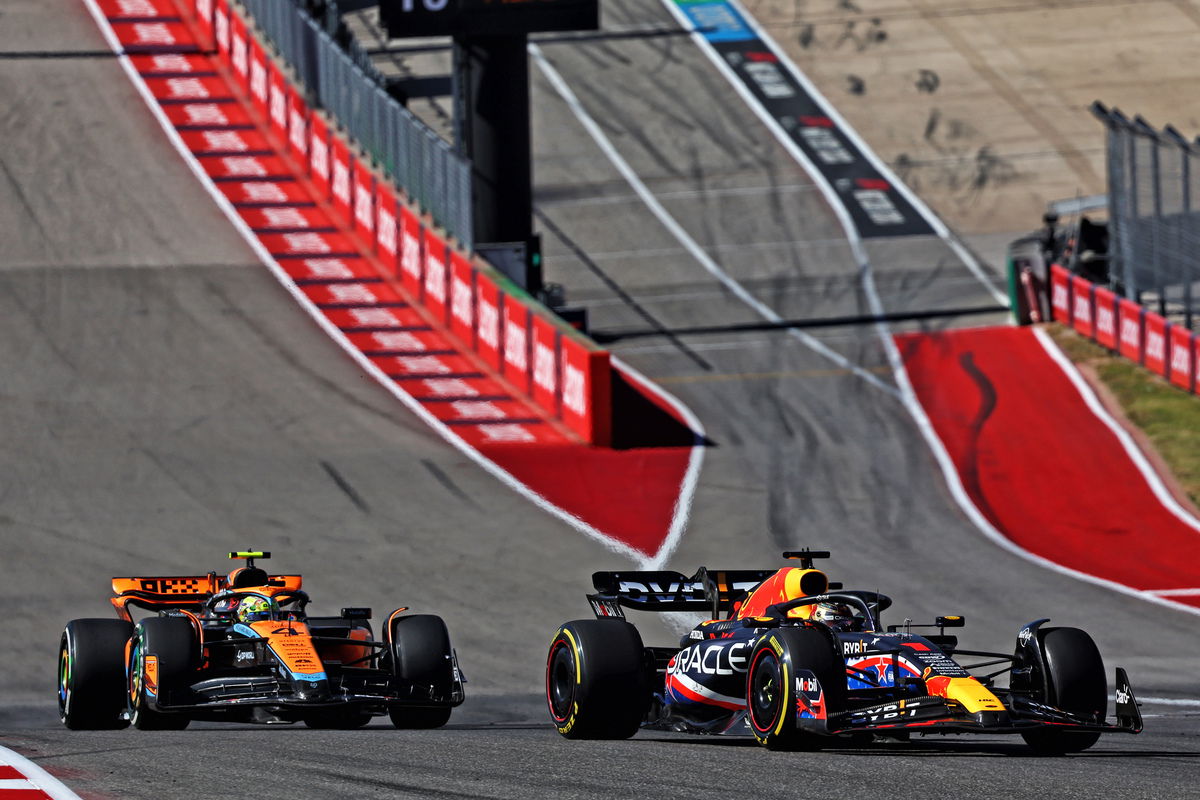

Did Red Bull open the door to rivals by switching development focus to 2024 mid-season while rivals continued to upgrade their cars until the final rounds of 2023?
Former F1 strategist turned pundit Bernie Collins argues that, while focusing on the RB20 so early offers some advantages, it’s not as clear cut as it might seem over those who introduced upgrades throughout the campaign.
Speaking with Speedcafe for the KTM Summer Grill, Collins suggests the stability in the rules provides an opening for rivals to challenge the dominance of Red Bull next season.
The Milton Keynes operation won 21 of 22 races and saw Max Verstappen romp to his third successive world championship in 2023.
Such was the team’s advantage that it was able to switch focus towards next year’s car early, raising concerns that it goes into the new year with a head start over its rivals.
“Fundamentally, we never know when a team has stopped developing one car or another car,” said Collins, who was formerly chief strategist with Aston Martin.
“And the regulations aren’t changing dramatically across years, from a technical point of view.
“Teams that are still working on the ’23 car, that’s going to feed directly into the ’24 car.
“Okay, for someone like Mercedes who are totally changing the car, it is clean cut, but for the others, where the car would be an evolution of this year, it’s not so clean cut as something you’re doing on the wind tunnel now [is] going to affect next year’s car – it’s all going to lean the same way.”
While Red Bull introduced little in the way of development parts in the back end of the year, rivals were far more prolific.
Sauber, Aston Martin, and Scuderia AlphaTauri all sported upgrades at the year’s final round, while Alpine had a new rear wing in Las Vegas.
And while some are little more than event- or circuit-specific tweaks, others were wholesale development parts.
Case in point is the floor Scuderia AlphaTauri ran in Abu Dhabi, a new part that raised eyebrows up and down pit lane.
But while there is information to glean from a development programme running throughout the season, it has a reduced return for Mercedes, Haas, and some others.
While Mercedes finished second in the constructors’ championship, it has made no secret of its desire to change the underlying philosophy of its car.
As a result, there are questions about how much of the W14 will carry across and, therefore, how deeply the team will understand its new car when it hits the track in February.
Collins suggested the incremental improvements introduced by other teams could be a longer-term advantage, with the added benefit of offering step-by-step validation that any changes are in the right direction.
By not having such packages routinely, she argues, Red Bull has less development data to verify that its decisions are correct.
“That might be a slight disadvantage, some might say, because at least McLaren are proving that their wind tunnel and everything is working as they want,” she argued.
“But I think they’re going to be in a pretty strong position again next year because they have proven time and again that, in an aero efficient era, in very aero dominant regulations, Red Bull with Adrian Newey can do very, very strong cars.
“So I expect them to be at the front.
“Worryingly, there’s a good chance there’s even more of a gap because they’ve been just going development for next year, or they’ve not felt they’ve had to push this year.
“But what’s coming from everyone else? If you look at McLaren’s rate of development, God, they could be anywhere.”





















Discussion about this post